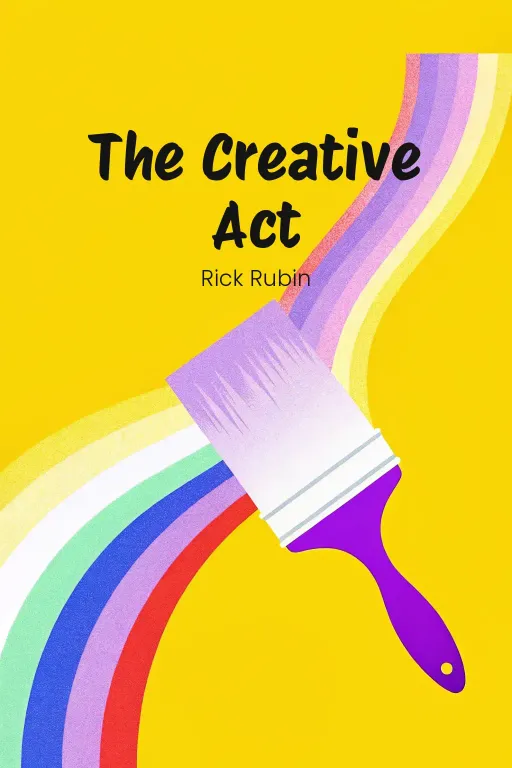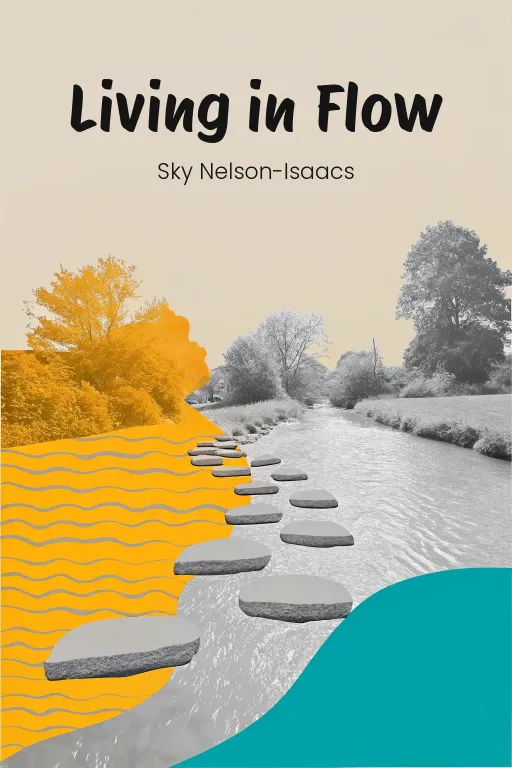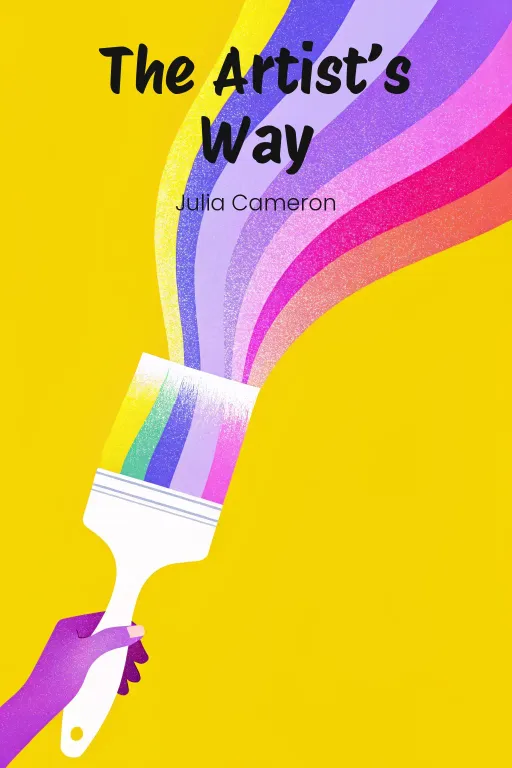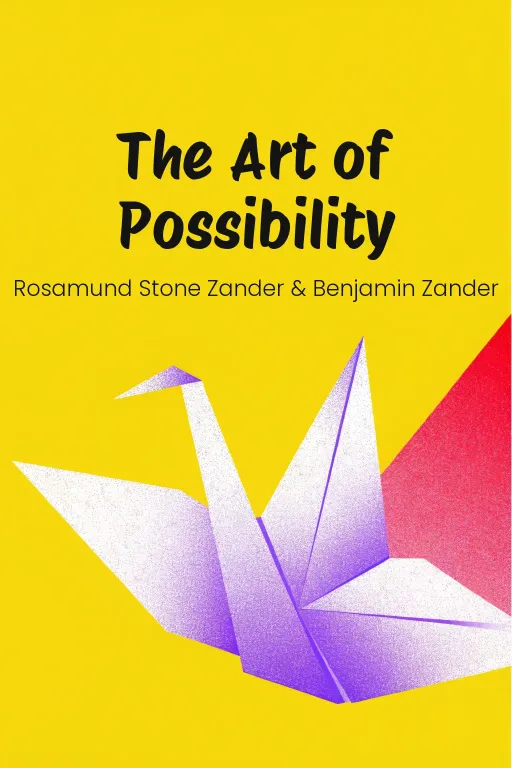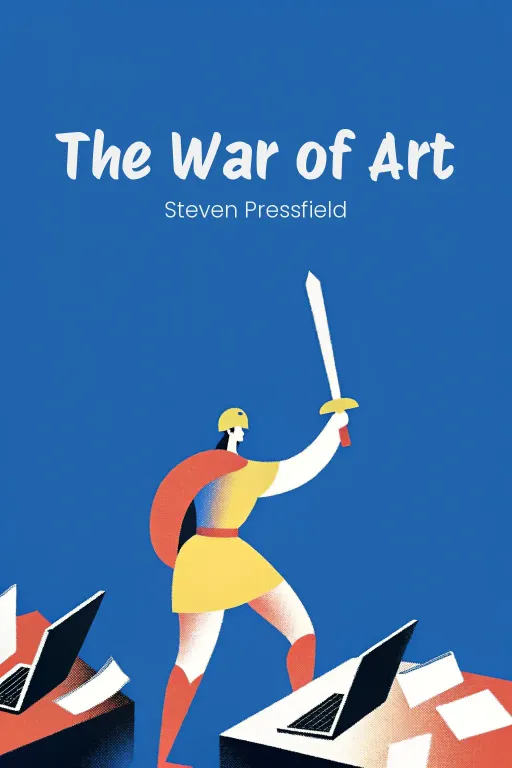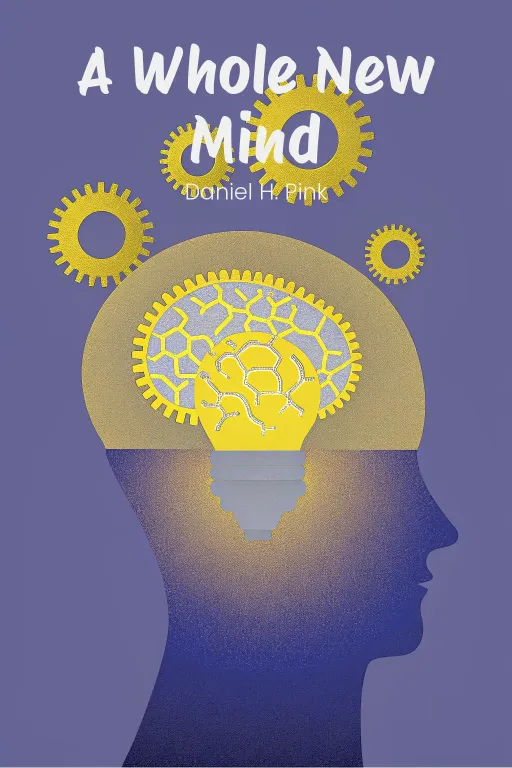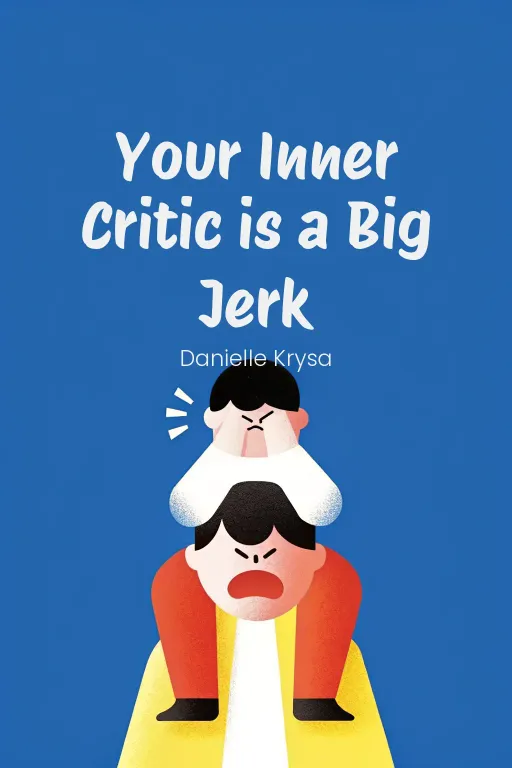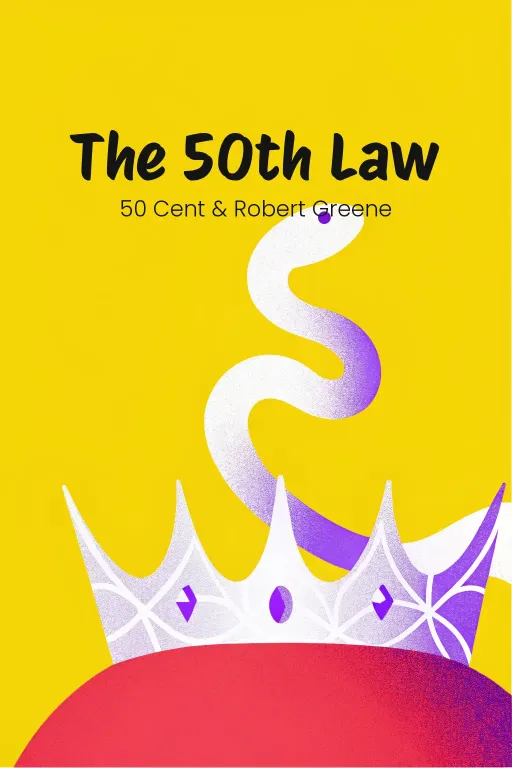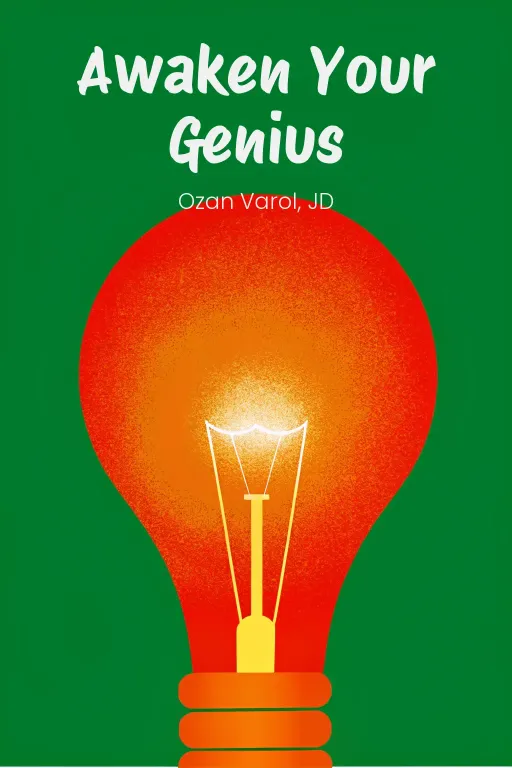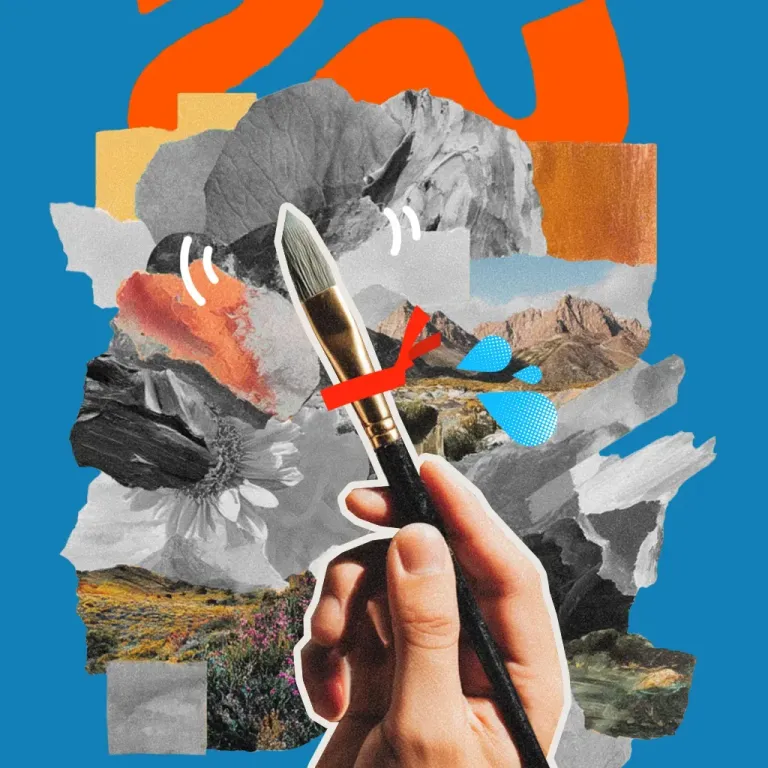
Crush Resistance: Unlock Your Creative Power
Podcast by Chasing Sparks with Alex and Justine
Break Through the Blocks and Win Your Inner Creative Battles
Crush Resistance: Unlock Your Creative Power
Part 1
Alex: Hey everyone, welcome back! So, let's kick things off with a question: Has it ever happened to you that when you finally sit down to work on something you're truly passionate about, you end up scrolling through your phone or, I don't know, suddenly find the urge to reorganize your closet? Justine: Oh, absolutely! We've all been there, haven't we? The classic case of “achievement by avoidance.” I swear, my desk has never been more organized than when I'm desperately trying to avoid a deadline. But Alex, why are we calling out our listeners’ procrastination today? Alex: Because what you're describing, Justine, and what a lot of us struggle with, actually has a name: Resistance. And according to Steven Pressfield in his insightful book, “The War of Art”, Resistance is this invisible force that keeps us from becoming our most creative and fulfilled selves. Justine: “Invisible force”? Okay, are we about to get all spiritual on this podcast? Or are we just talking about good old-fashioned laziness dressed up in a fancy suit? Alex: Hold on there, Mr. Skeptic! Resistance isn’t about laziness, no, no. It's more about a deeper, almost primal fear – fear of failure, fear of success, even fear of change. Pressfield takes us through what he calls "the artist's war." He starts by exposing Resistance, then guides us on how to turn pro, and finally, connecting creativity to something bigger, dare I say, something sacred. Justine: So, if I'm understanding correctly, he's giving us a step-by-step guide to stop making excuses and, you know, actually get the work done. Alex: Precisely! In today's episode, we're going to dissect it all. First, we'll explore what Resistance is and why it's so sneaky. Second, we'll look at how adopting a professional mindset can be our secret weapon against it. And third, how channeling creativity can connect us to something bigger than ourselves, leaving a lasting impact. Justine: And if that third bit sounds a little too “woo-woo” for some, fear not – I'm here to keep Alex somewhat grounded. Let's see if this war is actually worth fighting or if Resistance is just a convenient excuse to skip leg day.
Understanding Resistance
Part 2
Alex: So, Justine, let's jump right into the heart of this whole battle we're talking about—understanding Resistance. Pressfield describes it as kind of this universal adversary, you know? It's intangible, but it lives inside each of us. It's not just simple procrastination, it's something deeper, more… sinister, almost. It's that internal force that keeps us from pursuing things that really matter, things that require us to take risks, put in real effort, or be genuinely authentic. Justine: Okay, hold on a second. How is “that” different from just plain old laziness? I mean, seriously. If I'm binge-watching some show instead of, say, writing, how do I know if it's this capital-"R" Resistance or just me, you know, enjoying the latest season of some overly dramatic series? Alex: That’s a great question, really. I think the main difference is what's at stake, right? Resistance doesn’t really kick in for meaningless distractions. It's more like it shows up when something truly meaningful or personally significant is at risk—when there's the potential for failure, or growth, or even just feeling vulnerable. Pressfield even compares it to Freud’s idea of a "Death Wish," like this subconscious drive to resist progress and pull us back to our comfort zones or even self-sabotage. Justine: So, you're saying it’s that little voice in my head going, "Hey Justine, you could write that article today, but wouldn't life be so much better if you just, I don’t know, alphabetized your spice rack instead?" Alex: Exactly! That’s why it’s so insidious—it doesn’t scream at you, it whispers. Resistance often disguises itself as rational thoughts. You know, like, "Now’s not the perfect time," or "I just need to do a little more research," or "I'll wait until inspiration strikes." All these excuses that feel totally logical, but they're really just avoidance dressed up as being prepared. Justine: Alright, I get the picture. So, Resistance doesn't waltz in and say, "Don't create art!" No, it shows up as reasonable-sounding excuses. Sneaky. Alex: Exactly. And you know, Pressfield also talks about how fear is its main weapon. Fear of failing, fear of being judged, even—and this is the surprising part—fear of succeeding. Like, that painter who just can't seem to start their masterpiece, they're not just tidying their studio for the fun of it; they’re putting off starting because they're terrified that the result just won't live up to their own expectations. Justine: Fear of success? Really? Isn’t that, like, the goal? Alex: You would think, right? But success comes with its own set of risks. Higher expectations, tougher judgment from others, and even the loss of being anonymous. Think about it: if you succeed, you're suddenly accountable to keep that success going. For a lot of people, that’s way more intimidating than failing in the first place. Justine: Okay, so Resistance thrives on fear and stays hidden by wearing this invisibility cloak made of "reasonable" excuses. Got it. But here’s my next question: why is this such a universal thing? Why does Pressfield keep saying that Resistance happens to everyone? Alex: Because it’s connected to doing work that truly matters for you. Whether you're writing, or painting, or starting a business, or just working on personal growth, Resistance shows up because all of those things involve risk and have impact. Pressfield really emphasizes that universality. Even geniuses—Virginia Woolf, Vincent van Gogh—they struggled with their own inner demons. It’s not about being flawed or uncreative, it’s this shared human experience that comes with pushing boundaries and exploring the unknown. Justine: Well, that’s... comforting, in a way. I’m procrastinating like Picasso, which isn’t a bad crowd to be in! But, uh, how does this "force," as you call it, operate? Does it have a playbook? Alex: Definitely. I mean, it's universal, so it affects anyone who’s pursuing meaningful goals, whether they are a total beginner or a seasoned expert. It’s also internal, meaning it comes from within, which makes it harder to spot sometimes. And, here’s the kicker, it’s totally impersonal. Resistance doesn’t care about your feelings, or how talented you are, or what your circumstances are. It’s this indifferent, relentless force designed to pull you away from doing what truly matters. Justine: Huh. So, it’s like, gravity—you can’t exactly negotiate with gravity; you just have to figure out how to, you know, work with it or against it. Alex: That's a perfect way to put it! And Pressfield also points out that it’s adaptable and cunning. It kind of morphs to fit your weaknesses. For some people, it's procrastination. For others, it's perfectionism—where Resistance is wearing a mask of "getting everything just right". It’s really sneaky like that. Justine: Let me guess—it probably loves modern distractions, right? Like, hello, smartphones, endless doomscrolling, TikTok rabbit holes…? Alex: Absolutely. Technology just amplifies Resistance. Social media, notifications, that constant illusion of "busyness"—modern life basically hands Resistance a megaphone. And society's obsession with instant success doesn't help either. We’re all so focused on the polished final product that the messy reality of creating something feels like failure in itself. Resistance feeds on that pressure. Justine: Wow, so now Resistance has this whole toolbox: fear, excuses, tech distractions, oh, and societal expectations. Talk about an overachiever. Alex: And here’s the real head-scratcher—it can also act as a compass. Resistance is actually strongest when you’re closest to something important. If you feel intense Resistance towards a certain goal, it probably means that goal is deeply connected to your potential or your values. Justine: Wait a minute, Resistance is an "infallible compass"? So, the fact that I procrastinate the most on my screenwriting means it’s... my true calling? Alex: That’s what Pressfield implies! The stronger the Resistance, the more significant that work is likely to be for you. Recognizing that can actually turn your struggles into a sort of guiding light. Justine: Okay, I’ll admit, this is starting to click for me. Resistance isn’t just laziness; it’s like this overzealous bouncer blocking the door to your dreams. Alex: Exactly! And part of overcoming it is as simple as recognizing that it’s there. Pressfield says, "Resistance will tell you anything to keep you from doing your work." Once you can name it, you can start stripping it of its power. Justine: So, step one is just calling it out, like, "Hey Resistance, I see you! You’re only here because I’m actually doing something that matters." Alex: Exactly. Just recognizing it shifts the power dynamic. By naming it, you’re making it something external. Instead of letting it control your actions, you're taking the first steps towards taking back control. Justine: Alright, Alex, Resistance is officially on my radar. So, what's next? Do we karate-chop it? Build a moat around it? Alex: Not quite yet. We'll get to strategies for fighting it, but first we really need to understand it, that's the foundation. Because once you clearly see what Resistance is and how it works, you're in a much stronger position to fight back. For now, let's just let all this knowledge sink in, okay? Justine: Fair enough. Resistance, consider yourself formally unmasked.
Turning Pro – Combating Resistance
Part 3
Alex: Okay, Justine, now that we’ve pulled back the curtain on Resistance and seen how it tries to trip us up, let's talk about what's next. Once you recognize it, the real work begins – figuring out how to beat it. And that's where adopting what Pressfield calls a "professional mindset" comes in. Justine: Perfect timing, Ang! I’ve been trying to negotiate with my inner “Resistance doorman,” but the guy's a tough negotiator. I need some actionable strategies, so let's dive in. Alex: Sure. So, Pressfield lays it out in his book "Turning Pro." It's not just about what you do, but transforming how you think and feel. Essentially, it's about ditching the inconsistent habits of an amateur and embracing disciplined habits, bouncing back from setbacks, keeping your emotions out of the results, and constantly learning. Justine: Sounds great on paper, but "total transformation" sounds…intense. Where does one even start? Alex: It starts with something surprisingly simple: showing up and doing the work, day in and day out. Professionals don’t wait for some magical spark of inspiration. Like a surgeon who doesn't wait to feel like doing surgery, they treat their work seriously. Justine: Gotcha, “putting in the reps,” as they say. But what about those days when you're just not feeling it? When just getting through the day feels impossible? Alex: Those, Justine, are the days that matter most. Pressfield actually talks about this from his own experience. He says most mornings he battles dissatisfaction, those tempting distractions, but he committed to dedicated hours every day solely to writing. He doesn't wait for the muse strike –he creates the space for it to appear. Justine: So, like digging a well, then. You won’t hit water if you give up after a few scoops, but if you keep at it every day, eventually, inspiration kinda has no choice but to show up, right? Alex: Exactly! And the cool thing is, consistency weakens Resistance. The more you show up, the less room it has to mess with you. Justine: Okay, playing devil's advocate here: what if you're disciplined but still failing? Do you ever get to a point where you throw in the towel, even if just for a little while? Alex: That's where resilience comes in. Pressfield is firm: professionals understand failures aren’t the end; they're just another step on the path. Each rejection, each screw-up, can make you better and stronger. Justine: Easier said than done, though. Give me an example of someone who didn't let failure break them. Alex: How about Leo Tolstoy? Think about it: he had thirteen kids, lived through massive social change, personal struggles…and still managed to write masterpieces like War and Peace. Imagine juggling that chaos and still creating something so timeless. Justine: Alright, Tolstoy definitely makes my excuses for not writing look pretty lame. So, resilience isn't just about toughness –it’s about using failure as fuel to get better. Alex: Exactly! But resilience alone isn't enough. Pressfield also talks about the importance of emotional detachment. This is where the pros really separate themselves. Justine: Emotional detachment –that sounds intense. What does that even mean in practice? Alex: It's about not tying your sense of self-worth to your work’s outcome. Amateurs' identities tend to get very attached to projects; if those projects fail, it feels like a personal attack. Professionals focus on the process; they don't stress too much over how the work will be received. Justine: So, professionals are like mad scientists –they’re more fascinated by the experiment than the result itself? Alex: Precisely! Like, Pressfield talks about how athletes like Tiger Woods stays committed to the process during the game without expecting a win guarantee. So, failure –or even success– is secondary to being fully engaged in the act creation. Justine: That's a such hard mindset to have, though. Aren't we hardwired to crave approval and freak out about criticism? Alex: We are, but Pressfield says that detachment is liberating. Letting go of needing validation, you automatically relieve pressure and the fear, even the urge to be perfect. That freedom actually makes you bolder and more creative. Justine: Huh, so detachment is like an insurance policy against creative paralysis. You have some space to experiment if you're not afraid of the fallout. Alex: Exactly! And that brings us to the last piece: mastery. Professionals never stop perfecting their craft. They don't sit around waiting for a lightning bolt of genius; they get ready for it by building skill, studying their field, and always improving. Justine: Instead of hoping for some random burst of brilliance, they make sure their “creative toolkit” is sharpened and ready for when that brilliance finally shows up. Alex: Exactly. Pressfield even describes mastery as a destination and a journey. It's about striving to make your work deep and meaningful, not just 'getting it done'. Justine: And this involves accepting that perfection is just a myth, right? Alex: Absolutely. Perfection isn't the point; progress is. Pros don’t obsess over whether something will be their greatest achievement; they focus on putting in the work, improving little by little, and letting mastery grow over time. Justine: So, turning pro means adopting things like discipline, resilience, detachment, and mastery. Like, mental armor against Resistance? Alex: Exactly! And once you "turn pro," everything transforms. You're not at the mercy of Resistance anymore –you're in charge, equipped to take on creative challenges, head held high, and ready to slay. Justine: Alright, Alex, I gotta say, this sounds like a solid battle plan for taking down Resistance. Now, point me to the nearest overnight professional mindset dispensary, will you? Asking for a friend… Alex: Not overnight, Justine, but trust me, once you fully commit, the rewards are gonna be worth so much more than the struggle.
The Higher Realm – Creativity and the Divine
Part 4
Alex: So, with that professional mindset locked in, artists are ready to, you know, tap into those higher creative spaces, that divine inspiration. And this is where it gets super interesting, Justine. Pressfield basically connects creativity, not just to discipline and hard work, but to something deeply spiritual, what he calls tapping into “The Higher Realm.” Justine: Okay, here we go, the mystical stuff. So, are we saying that once I go “pro,” I suddenly get a direct line to the divine? Muses on speed dial, angels doing my editing? Alex: Not exactly like that, Justine, though I love that image. What Pressfield means is that creativity isn't just a solo thing. It's more like a partnership between you and, well, something bigger, a…transcendent force, if you like. The ancient Greeks, they had their muses, right? Divine beings that sparked creativity. Pressfield updates that, saying when we truly work hard and open ourselves up, we're inviting those higher energies in. Whatever you want to call them—muses, angels, even the universe itself. Justine: Alright, but Alex, be real. Are we talking supernatural beings whispering sweet nothings of poetry, or is this just a fancy way of saying that after a ton of work, you finally get a breakthrough? Alex: It's a bit of both, actually. Pressfield doesn't ignore the grind—the daily writing, the hours practicing. But he does believe there is a shift, a moment where your effort links to something larger than yourself. It's that flash of insight, the flow state where ideas seem to appear out of nowhere. You know when writers or musicians say, “It felt like the piece wrote itself?" That's what he is talking about. Justine: Right, got it. But the praying to muses bit… that sounds pretty old-fashioned. Alex: Totally! Pressfield uses Homer as the classic example. In The Odyssey, Homer starts by calling on the Muse, right? Asking her to breathe life into Odysseus’s tale. That wasn’t just some performance; it came from a belief that creativity went beyond the individual. By recognizing the muse, the artist admits they're just part of a bigger picture. Justine: So, Homer was basically saying, "Hey muse, I just type, you make it good"? You know, it does take the pressure off if you're just a vessel instead of the source of all genius. Alex: Exactly! Big point. Pressfield says that by giving credit to something external, you free yourself from ego and that need for perfection. It’s an act of humility—and weirdly, it helps you create with confidence. Justine: Hold on. If I credit some external force, wouldn’t I feel less responsible for actually doing the work? Alex: Good question. Pressfield would argue the opposite, though. You still have to put in the time. Invoking the muse isn't some get-out-of-jail-free card for being lazy; it actually demands more from you. It’s like showing up for a teammate—you do your part so that they can do theirs. Justine: Gotcha. So, the muse won't do the heavy lifting, but it's the extra push once you've got momentum. That is… surprisingly motivating, actually. Alex: Exactly. And here’s another thing—Pressfield talks about gratitude. When you value creativity as a gift, not just a personal win, you cherish it and nurture it. That gratitude deepens the work and keeps you focused—keeps that Resistance away. Justine: Okay, gratitude is great, but where does mortality come into play here? I noticed that came up. I feel like we're about to get deep now. Alex: Right, and this is where Pressfield gets truly insightful. Knowing we're all going to die can actually make us more creative. He says that understanding how short life is gives our work urgency and honesty. It pushes us to create something meaningful that will last longer than we do. Justine: Hmm. Noble, but a little dark, right? Why would thinking about death suddenly turn someone into a great artist? Alex: It’s not about being morbid—it’s about clarity. Pressfield uses the story of Odysseus and his crew to show this. Remember when they kill the sacred cattle of the sun god Helios? That disregard for warnings leads to their demise. Odysseus, he lives because he respects his purpose and focuses on his journey home. So, the lesson? When we ignore our true purpose—when we give into distractions or Resistance—we lose something precious. Justine: Okay, but why does Odysseus get a pass? Didn’t he mess up plenty along the way? Alex: Sure, but he learns from it and recommits to his mission: going home and fulfilling his destiny. That makes him different. And for creatives, this story reminds us to stay aligned with our values, even when we’re tempted to take a detour. Justine: So, we’re all Odysseus, sailing through our own storms of temptations. But what about modern examples? Does Pressfield give us anything recent? Alex: Definitely. He mentions Tom Laughlin, who noticed that when people are facing a terminal illness, their priorities completely shift. Small things disappear. What matters is love, relationships, and doing what they’ve always wanted to do. That awareness of death highlights what's truly important, and for artists, it makes them confront their truths and share it through their work. Justine: So, mortality isn’t about scaring us; it’s a wake-up call. And for artists, it cranks up the "Why not now?" Alex: Yep. It strips away pretense and fear, leaving only what’s truly essential. Pressfield wants artists to see their work this way—as their legacy to the world. Justine: Alright, so we’ve talked muses, mortality, and now I’m guessing we’re moving on to community—how creativity connects us? Alex: Exactly. Pressfield highlights that creating isn’t just showing off; it’s a gift to the world. Think of Homer’s Odyssey. His invocation to the muse wasn’t just about telling a cool story; it was about making something that speaks to people across time. Art that comes from honesty and gratitude will outlive the creator. Justine: So, you’re saying the artist’s job isn’t done when they finish the thing—it has to resonate beyond themselves? Alex: 100%. And when you approach creating with that in mind, it changes everything. It's not about ego but about contribution, about connecting with everyone else. Justine: Okay, Alex, I get it—I kind of see the point. Creativity becomes less about the grind and more about answering some higher calling. It’s… inspiring, in a “could actually do this” sort of way. Alex: That’s exactly what Pressfield wants you to take away. When you step into this higher realm, things align—effort, inspiration, gratitude—transforming art into something that echoes far beyond ourselves.
Conclusion
Part 5
Alex: So, today we've really dug into “The War of Art”. What it comes down to is this: Resistance is that universal enemy. It feeds on our fears, our tendency to avoid things. But here's the kicker – it actually points us toward what truly matters to us. Now, by choosing to "turn pro," we arm ourselves with the discipline, the resilience, and, honestly, the emotional distance we need to confront it head-on. Finally, seeing creativity as a connection to something larger than ourselves, whether it's muses, our awareness of our own mortality, or the legacy we want to leave, reminds us that creating art is a gift to the world, not just a personal indulgence. Justine: Okay, I get it. And if there's a key takeaway here, it's that resistance isn't just something blocking our path. It's a signpost. When you feel that pressure, that intense resistance, that’s how you know you're standing on the brink of something really important. So, the real question is, are you prepared to push through it? Alex: Right. So here’s what I propose, a little challenge if you will. Identify one area in your life where this Resistance is really flexing its muscles. Maybe it's a creative project, a big life goal, or even a small step you've been putting off. Name it, acknowledge it, and then commit to showing up and doing the work. Justine: Because in the end, this is a war worth fighting. Not for some illusion of perfection, not for the applause. But for that chance to leave something behind. Something that genuinely reflects who you are. Alex: Beautifully put, Justine. And remember this: Resistance loses its grip the moment you decide to just take that first step, you know? Just start. Until next time, keep showing up, keep creating, and keep embracing the battle. Justine: Exactly. Stay relentless, everyone. See you next time.
